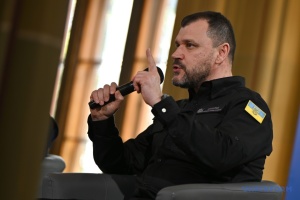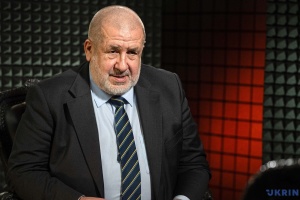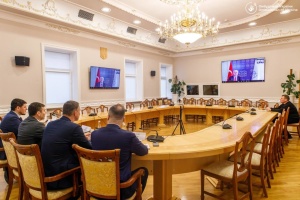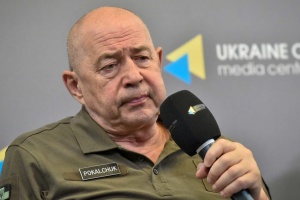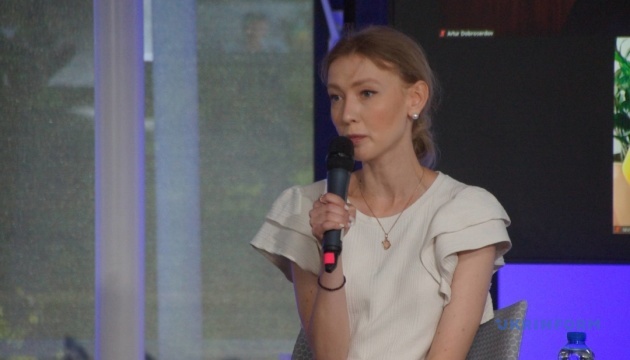
More than 380 cases of illegal “guardianship” established over Ukrainian children in Russia recorded - rights defender
Human rights defender Kateryna Rashevska, a legal expert with the Regional Center for Human Rights, said this during her address at the International Commission on Missing Persons, where a round table on the search for missing children from Ukraine was organized, Ukrinform's correspondent in The Hague reports.
"Over the past two years, we have seen reports on the establishment of illegal ‘guardianship’ in 380 cases and at least seventy-eight cases of ‘adoption’ accompanied by altering personal data," she said.
Rashevska told the story of the Ukrainian boy, Serhiy, who first suffered from Russian aggression when he was nine years old. He was blown up by a mine and suffered numerous shrapnel wounds and partially lost his sight. Then the age of 16, he became a victim of illegal deportation. The boy was forcibly taken to the Russian Federation and also forcibly transferred to a Russian family, who began to Russify him.
"Serhiy's papers were seized, and special software was installed on his phone to track his location so that he wouldn't run away. But the boy still managed to flee Russia and that family. He was one of the first to return to Ukraine in 2022," she said.
The human rights activist also emphasized that as soon as a child falls under Russian control, this always implies the imposition of Russian citizenship, inclusion in the Russian system of formal and informal education with elements of political indoctrination, as well as militarization.
"The Russians, by order of Putin and under the leadership of his adviser Sergei Kirienko, created military training centers in the newly occupied territories. There, children are trained using the same methods as applied to Russian conscripts," she said. According to her, orphans and children deprived of parental care are in the most vulnerable position.
"Currently, according to the Ukrainian authorities, there are about 4,000 persons. The Russian Federation deports such children to its own territory, or forcibly relocates them within the occupied territories of Ukraine. It also imposes Russian citizenship on them," she said.
She added that the Regional Center for Human Rights filed three reports with the International Criminal Court (ICC) regarding deportation as a war crime, unjustified delay of repatriation as a war crime, and the forcible removal of Ukrainian children to Russian families, which bears elements of the crime of genocide.
"We also appealed to the UN Committee on the Rights of the Child, and now, since February, we have seen positive considerations from this institution regarding militarization and political indoctrination in Russian education, which was illegally spread to the occupied territories, and into which deported children were immersed. We also appealed to the UN Committee on the Elimination of Racial Discrimination, as this body is called to prevent the crime of genocide," the rights activist added.
As reported by Ukrinform, The New York Times journalists found out that Russia had abducted 46 Ukrainian children from a Kherson orphanage at the outset of the full-scale invasion.
According to the official data from the Ukrainian authorities, since February 24, 2022, Russia deported a total of 19,546 children from Ukraine. These are officially confirmed cases – where the parent, guardian or witness of the child's deportation reported it to the National Information Bureau. More than 380 children have so far been returned to Ukraine.
On March 17, 2023, the Pre-Trial Chamber of the ICC issued arrest warrants for Russian leader Vladimir Putin, and Commissioner for Children's Rights Maria Lvova-Belova. Both are suspected of war crimes – deportation and illegal removal of the population, including children, from the occupied territory of Ukraine.
The Regional Center for Human Rights was founded in Sevastopol in 2013. It protects human rights, keeps records of violations, and applies international and national tools to document crimes.

